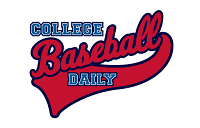 Florida State University battles Indiana this weekend in a super regional in Tallahassee, FL. There are statistics and match-ups that make this series interesting. Before we dive into some of those, let’s take a look at how each team has fared in the yet young postseason of regionals.
Florida State University battles Indiana this weekend in a super regional in Tallahassee, FL. There are statistics and match-ups that make this series interesting. Before we dive into some of those, let’s take a look at how each team has fared in the yet young postseason of regionals.
The Florida State Seminoles (47-15, 20-10 in the ACC) have cruised into the super regionals. Perhaps the most impressive tally for FSU is their record at home, sitting at 35-3. Hosting the preliminary regionals at Dick Howser Stadium in Tallahassee, the Seminoles cruised through with a 4-0 mark, continuing on their “home cooking” rampage. In three wins on their way to a sixth consecutive super regional, the ‘Noles put up a combined 32 runs. ‘Noles starters wouldn’t need nearly that run support, as they combined for 23 K’s, four earned runs, and just two walks over 20 innings. FSU’s lone struggle so far, if you can call it that, was their super regional clinching win against Troy. Starter Brandon Leibrandt gave up four runs on eight hits, striking out just one.
The Indiana University Hoosiers (46-14, 17-7 in the Big Ten) are increasing their fanbase with every pivotal swing they take. Indiana, like Florida State, was selected as a regional host, a first in school history. They’d provide some excitement early on in their first game of the regional. In a tie game against Valparaiso, Hoosier fans (who had filled every seat at Bart Kaufman field that Friday night) were treated to the home run heroics of sophomore catcher Chad Clarke. What made that walk-off blast even more exciting was the fact that it came against a Valpo reliever who brought with him to the mound a 0.36 ERA on the season. Indiana continued to roll, putting up 21 runs in two games against Austin Peavy, while allowing just seven.
Numbers and Notes:
5-FSU’s Stephen McGee ranks fifth in college baseball in walks. Indiana’s Kyle Schwarber ranks fifth in homers.
That figure is just a small way of illustrating a difference between both teams in terms of philosophy. Florida State hasn’t been a home run hitting team this season. They’re slugging .426 with just 34 homers on the season. IU isn’t far better in terms of slugging percentage (.448), but they’ve accrued a whopping 50 long balls in two less games. There’s a reason the slugging percentages are so much closer than the home run counts, that reason is what illustrates this super regional’s battle between Power and Patience.
Florida State may have less home runs than Indiana, but they’ve got an edge in walks (345 to the Hoosiers’ 240). The “patience” that FSU has shown isn’t very typical. After all, the Seminoles have actually struck out much more (381) than the Hoosiers (338). The kind of patience being referred to here is Florida State’s eventual aversion to the long ball this season. Early on, the ACC’s brutal arms punished the ‘Noles for long swings and big cuts at the plate. Eventually, as they showed what IU head coach Tracy Smith called “a disciplined approach”, the Seminoles leveraged their way to 145 doubles (to Indiana’s 124), 18 triples (12), and a decent .287 average on the season.
8-IU is eighth in the nation in double plays turned per game. FSU is eighth in OBP%.
Here’s what’s strange about Indiana’s stat up there = they, along with FSU, fell outside of the top 50 in NCAA rankings in fielding percentage. In fact, neither team was even within the top five in their conferences in terms of fielding percentage. Nonetheless, with IU hitting the strike zone often as part of a pitch-for-contact philosophy, FSU’s on-base aptitude will be tested.
Players to watch:
IU: Kyle Schwarber: With 17 home runs on the season and a .665 slugging line, the Hoosiers’ sophomore backstop is going to be a cautionary bat for FSU’s strike-throwers.
Scott Donely: He’s not heavy on power, but Donely put up a .498 slugging percentage via his 15 doubles and two triples, leading to a team-leading 56 RBI. Additionally, at just 14 strikeouts to his 20 walks, he’s easily the Hoosier’s toughest out at the plate.
FSU: Luke Weaver: The ‘Noles most talented arm, Weaver totalled 114 K’s in 92 innings. He finished his season with a 7-2 record on a 1.98 ERA
Scott Sitz: Doesn’t have quite as electric stuff as Weaver, but carries a sterling 1.59 ERA and a 10-1 record.
Stephen McGee: team high nine homers on the seasons, .292 average, fifth in the nation in walks.

